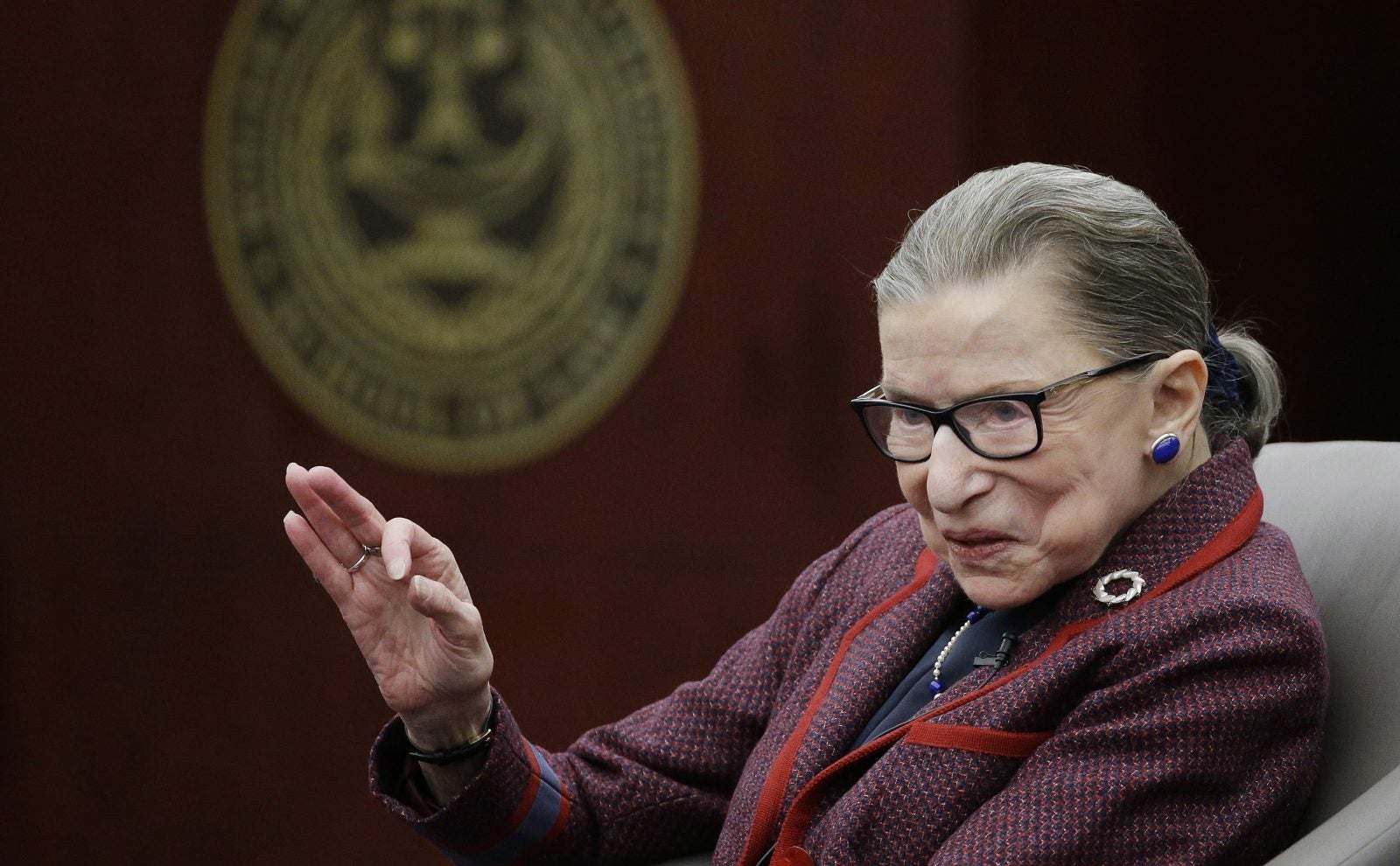Ruth Bader Ginsburg just told the world #MeToo is never going away—deal with it
Suppression of female anger and self-advocacy has always has been imperative to patriarchal control. The force of women united terrifies those whose personal and societal power thrives on sexism. Thus, many women rightfully anticipate retaliation against the #MeToo movement.


Suppression of female anger and self-advocacy has always has been imperative to patriarchal control. The force of women united terrifies those whose personal and societal power thrives on sexism. Thus, many women rightfully anticipate retaliation against the #MeToo movement.
Don’t count Ruth Bader Ginsburg among them.
Speaking yesterday (Feb. 11) at Columbia University the 84-year old US Supreme Court justice told CNN’s Poppy Harlow that she’s not concerned about backlash against American women’s increasingly universal fight against sexual harassment.
“I don’t think that there will be a serious backlash,” Ginsburg said. “It’s too widespread.”
Her response marks increased confidence from last month, when, speaking about #MeToo with NPR’s Nina Totenberg, Ginsburg said “Let’s see where it goes. So far, it’s been great…When I see women appearing every place in numbers, I’m less worried about backlash than I might have been 20 years ago.”
Despite Ginsburg’s most recent expression of faith in progress, there have been signs of a negative reaction to the movement from respected commentators.
Andrew Sullivan penned “It’s Time to Resist the Excesses of #MeToo” for New York magazine, decrying the Shitty Men in Media list by scoffing that one man was accused of “secretly removing a condom during sex” with a colleague—which, he says, is surely not workplace misconduct. “Resist this McCarthyism,” he warns his readers.
Then there was The Atlantic writer Caitlin Flanagan who, following the allegation that Aziz Ansari inappropriately pushed himself on a woman on a date, tactlessly claimed that “Apparently there is a whole country full of young women who don’t know how to call a cab…They are angry and temporarily powerful, and last night they destroyed a man who didn’t deserve it.”
Ginsburg’s primary concern about #MeToo is that the fight for equality and justice will not extend beyond prominent public figures in media or Hollywood. “This new attitude should protect the maid who works at a hotel, and I think it is spreading so far,” she said. This focus directly mirrors that of Tarana Burke, the civil-rights activist who created the Me Too movement more than a decade ago,
“Too much of the recent press attention has been focused on perpetrators and does not adequately address the systematic nature of violence, including the importance of race, ethnicity, and economic status in sexual violence and other forms of violence against women,” Burke wrote in advance of the 2017 Golden Globes, which she attended with actress Michelle Williams. Burke’s words are well-supported by statistics—the poorest Americans are 12 times more likely to be sexually assaulted than the wealthiest. “We believe that women of color, and women who have faced generations of exclusion…should be at the center of our solutions. This moment in time calls for us to use the power of our collective voices to find solutions that leave no woman behind.”
According to Ginsburg, this inclusivity is well on its way; for example, Hollywood’s #TimesUp movement against industry-wide sexism is rooted in an alliance between actresses and blue-collar farm workers.
“There will always be adjustments when there’s a transition, but on the whole it’s amazing to me that for the first time women are really being listened to,” Ginsburg tells Harlow. “Because sexual harassment has often been dismissed as, ‘Well she made it up,’ or ‘She’s too thin-skinned.’ So I think it’s very healthy development.”
Burke shares this positivity, noting on interview with Quartz that #MeToo “is not really a movement about trauma—it’s a movement about joy. It’s a movement about love and about respect, and it’s about finding the ways that we can cultivate those things in our lives so that we can use them to combat the trauma we’ve experienced.”
As for the impact of #MeToo in Washington, Ginsburg was more skeptical. In response to Harlow’s question—are Washington and Congress listening, and acting fast enough—the notorious RBG laughed: “Is this Congress acting fast enough? This congress is not acting. But we will get past this time of inaction.”
This story is part of How We’ll Win, a project exploring the fight for gender equality at work. Read more stories here.